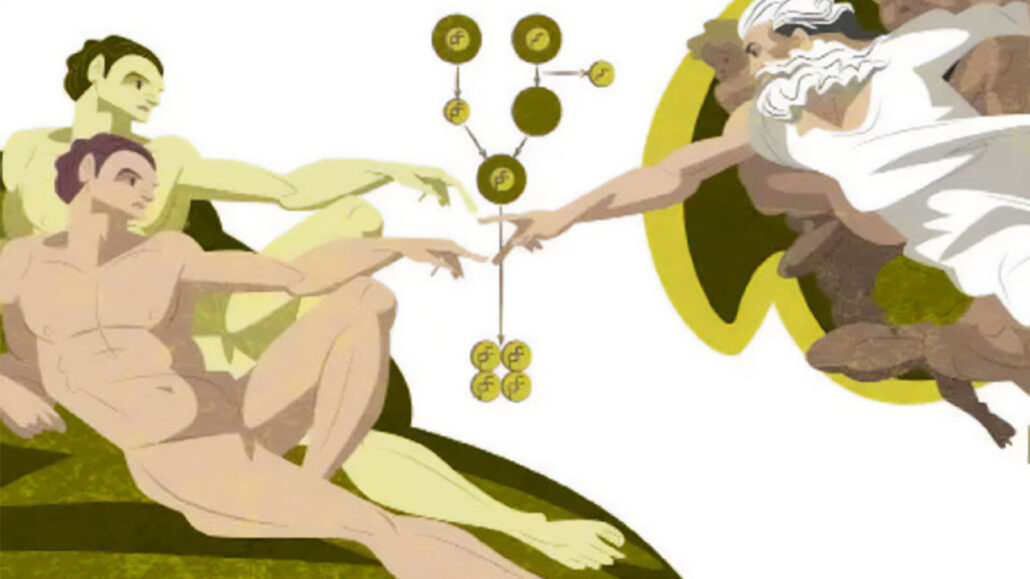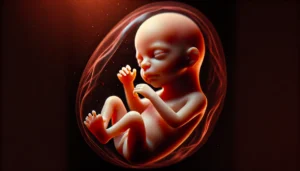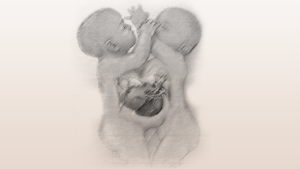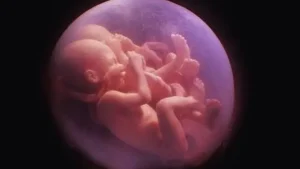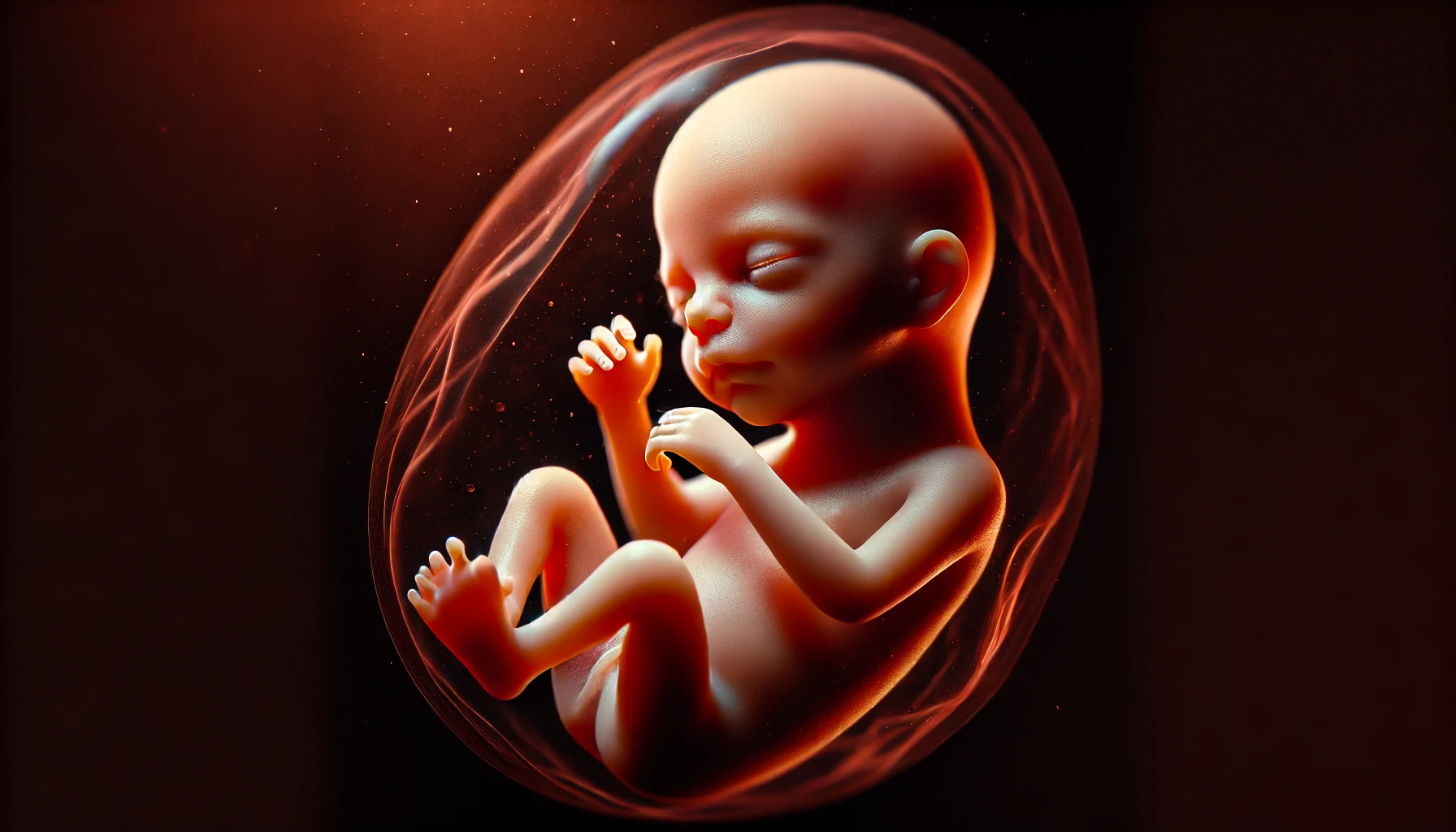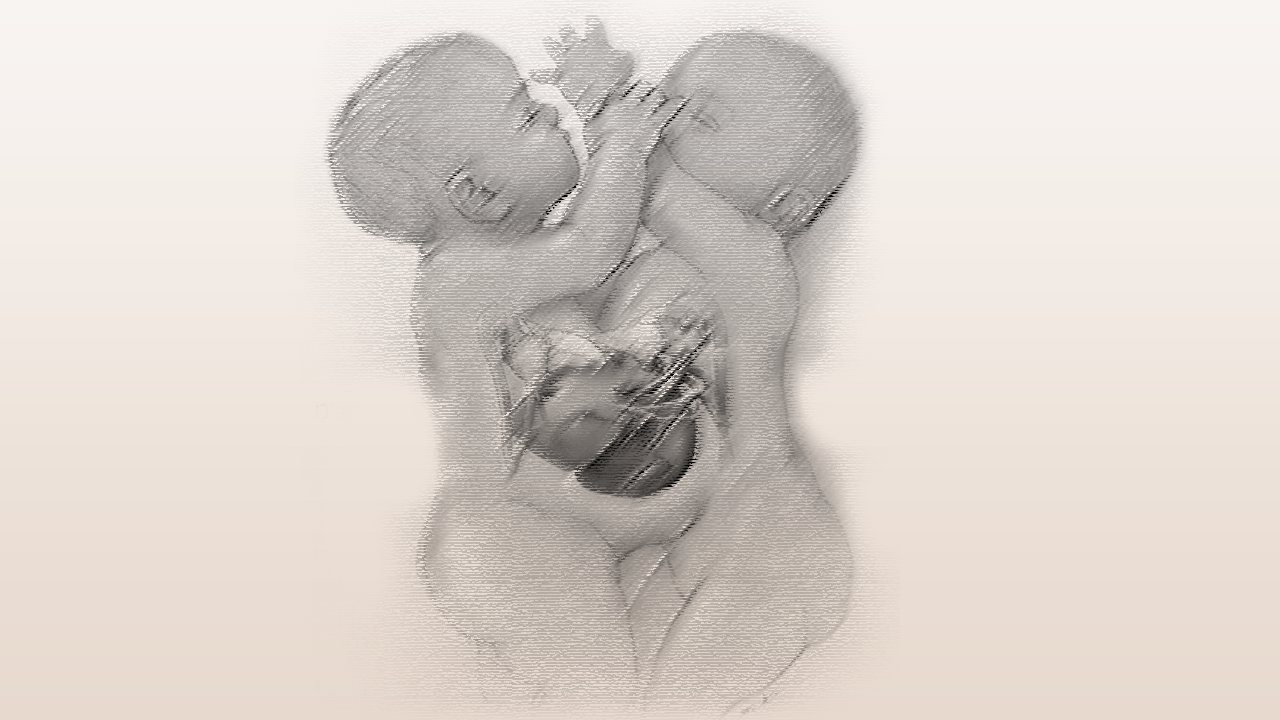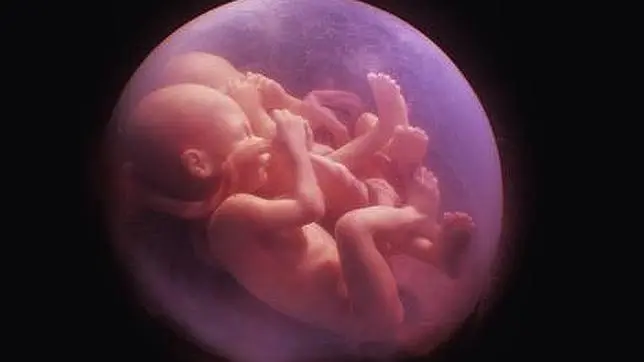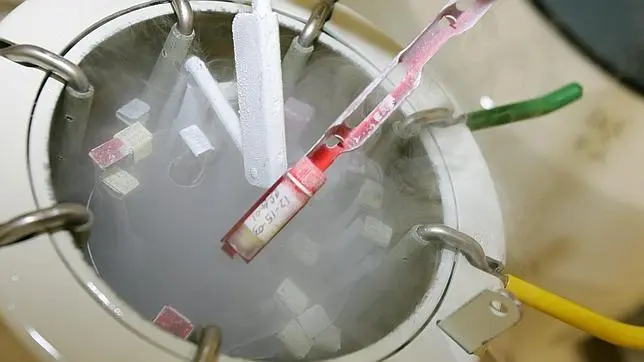Question:
Why is the possible cloning of human embryos ‘intrinsically immoral’?
Does cloning in animal species deserve the same judgment?
Answer:
Some concepts
Cloning consists in the reproduction of two or more genetically identical individuals. It can be obtained in at least two different ways: by twin fission or by the transfer of the nucleus. Twin fission is the process by which a single fertilized cell, i.e. the embryo in the state of a cell in the earliest stages of development, undergoes a particular division generating two identical embryos that will give rise to two identical individuals. Monozygotic human twins are precisely the result of natural cloning. One could think of achieving this artificially. The technique by transfer of the nucleus consists, on the other hand, in depriving a fertilized ovocellula of its nucleus before the zygote is formed, and then replacing this aploid nucleus (i.e. with only half of the chromosomal heritage) by a diploid nucleus (with all the chromosomal information) from an adult somatic cell of the same species. This would result in an individual perfectly identical to the one from which the somatic cell was taken. This technique is an ‘asexual’ fertilization [1].
The discussion on the subject has become topical as a result of the disclosure of experiments on animal cloning carried out by the Roslin Institute of Edinburgh (Great Britain) and by scientists of the State of Oregon (United States). Since the publicity given to this news in January and February (1997), the world press has become the arena where the usefulness and morality of these experiments are discussed. And just as some have shown themselves to be full of concern, others have shown themselves to be inclined to continue with research even in the field of cloning human beings [2].
What to say about this?
Cloning in humans
What are the possible purposes of cloning in the human field? Many hypotheses can be elaborated, even entering into terrain strictly of scientific fantasy, but a possible reality if we take into account that day by day we learn of research and experiments that corroborate that we are in the hands of a science that has lost its conscience, its scruples, its respect for human dignity and its fear of the destruction of life.
Some possible ends motivating this enterprise could be purely experimental and cognitive, lucrative, psychotherapeutic or purely a defiance of human limits and divine power. Thus, some propose cloning as a means of producing human duplicates which, frozen, could constitute an organ bank made to measure for the interested party; it could serve to create an indefinite army of automatons, of prefabricated soldiers, of scientists or second-rate workers; it could be the option to give offspring to lesbian or homosexual couples or simply to those who want children identical to themselves; it could be the way to create a ‘superior race’ projected in the laboratory, purified of our current defects; it could be the solution to manufacture individuals without a family on whom experiments can be carried out without anyone crying over the results and the losses. In short, science fiction or not so much. Shall we be surprised at nothing?
No one doubts that science can do it. And no one doubts that, if we continue shedding hypocritical tears and raising to the sky loud cries but orphaned of authentic and effective gestures, we are facing a not-too-distant future.
But, is it morally licit? No. Why not?
The reason is that we are talking about human beings and, by acting on them, cloning perverts two fundamental dimensions: the irrevocable and intangible dignity of their conception and the dignity of their individuality.
1) The ethical problem of artificial fertilization
Artificial cloning involves artificial fertilization techniques [3]. The judgment on the latter is negative from the moment it separates the two meanings of the conjugal act: the unitive and the procreative meaning. I refer to the documents that have already dealt with the subject with sufficient clarity [4].
2) The problem of embryo manipulation
Cloning also involves manipulation of the human embryo. Again, this is immoral because it does not respect the principles that regulate the medical and scientific treatment of human embryos. These principles can be summarized as follows.
a) Principle of intentionality: every intention must be just. The intention must be for the good of the human being, starting with the one on which it is working. Thus, any therapeutic intention is licit. Likewise, certain research intentions would be licit when they are aimed at future human therapy. On the other hand, simple scientific curiosity is not always licit [5].
What therapeutic intent might the cloning of human embryos suggest?
b) Object of the act: what is done must be just, that is to say, adequate to the dignity of the subject on whom it is acted. This is verified in two elements:
- Respect for the life of the embryo [6]. The technical work (therapeutic or research work aimed at future therapy) must respect the human subject on which it intervenes in all its phases, from conception to natural death. Because from the beginning to the end (conception and death), the scientist is dealing with a human life. There is no justification for establishing a chronological discrimination, i.e. the arbitrary establishment of periods in which man can be manipulated [7]. This also implies that when the human subject is capable of personal consent, this must be freely obtained. When the human subject is incapable (such as the embryo or fetus), this condition guarantees the lawfulness of a therapeutic intervention, but makes any purely experimental action unlawful.
- Respect for the biological nature (structure) constitutive of the human being. Therapy and experimentation must be developed along the lines of the constitutive structure of human life. This is particularly true for the structures and dynamisms involved in the emergence and development of human life itself. Man can enter into human nature to correct its defects or pathologies, or to favor its positive potentialities, but never to alter its essential structure: ‘Genetic manipulation becomes arbitrary and unjust when it reduces life to an object, when it forgets that it has to deal with a human subject, capable of intelligence and freedom, who must be respected, whatever his limits; or when it treats him according to criteria that are not based on the integral reality of the human person, with the risk of endangering his dignity. In this case, it exposes man to the whim of others, depriving him of his autonomy. Scientific and technical progress, whatever it may be, must always maintain the greatest respect for the human values that constitute the safeguard of the dignity of the human person. And because in the order of medical values, life is the supreme and most radical good of man, a fundamental principle is necessary: first of all, to prevent any harm, and then to seek and pursue the good. To tell the truth, the expression genetic manipulation is ambiguous and must be the object of a true moral discernment, because it hides on the one hand adventurous attempts that tend to promote a sort of superman and, on the other hand, positive attempts aimed at correcting anomalies, such as certain hereditary diseases, not to mention beneficial applications in the fields of animal and plant biology useful for food production. For the latter cases, some begin to speak of genetic surgery, as if to show that the physician intervenes not to modify nature, but rather to help it develop according to its essence, that of its creation, that willed by God.
Working in this obviously delicate field, the researcher adheres to God’s design. God wanted man to be the king of creation. To you, surgeons, specialists in laboratory research and general practitioners, God offers the honor of cooperating with all the forces of your intelligence in the work of creation, begun on the first day of the world'[8].
This fundamental text indicates the following principles:
-Individuality must be respected, even at the biological level.
-Any harm must be prevented.
-What is done for therapeutic purposes is licit, as long as it is not an adventurous attempt [9].
-It is licit as long as it respects the line of the essence of man; but not as a modification of human nature [10].
Everything can be synthesized with the judgment of the Instruction Donum vitae: ‘ Techniques of fertilization in vitro can open the way to other forms of biological and genetic manipulation of human embryos, such as attempts or plans for fertilization between human and animal gametes and the gestation of human embryos in the uterus of animals, or the hypothesis or project of constructing artificial uteruses for the human embryo. These procedures are contrary to the human dignity proper to the embryo, and at the same time they are contrary to the right of every person to be conceived and to be born within marriage and from marriage. Also, attempts or hypotheses for obtaining a human being without any connection with sexuality through “twin fission”, cloning or parthenogenesis are to be considered contrary to the moral law, since they are in opposition to the dignity both of human procreation and of the conjugal union.’[11].
Cloning in non-human species
The moral judgment is different when it comes to non-human beings. Here too, the criteria that should guide us are respect for the essential plan of the Creator and the beneficial or harmful impact on man. Basically, both are related.
The other beings of the universe are ordered to man and therefore he can use them for his benefit. But this relationship of man to the cosmos also has its limits and rules, and can be defined as a ministering lordship. It is ‘lordship’ because it is a co-participation in the work of God. But it is an accountable stewardship, because it is a gift of God: ‘It was the Creator’s will that man should communicate with nature as an intelligent and noble ‘master’ and ‘custodian’ and not as an unrestrained ‘exploiter’ and ‘destroyer”[12].
Evangelium vitae expresses it in this way: ‘the dominion granted to man by the Creator is not an absolute power, nor can one speak of a freedom to use and misuse’, or to dispose of things as one pleases. The limitation imposed from the beginning by the Creator himself and expressed symbolically by the prohibition not to eat of the fruit of the tree’ (cf. Gen 2:16-17) shows clearly enough that, when it comes to the natural world, we are subject not only to biological laws but also to moral ones, which cannot be violated with impunity. ‘[13]
The objections raised in this field are not based, therefore, on a false criterion of the intangibility of nature, but on the need for a rational control over it. The current manipulation involves two risks: the first is the lack of knowledge of the consequences on nature itself; the second touches the field of human intentions: where does the current genetic work point to? what connections does it have or can it bring for a possible application to the human field? The boundaries between the genetic manipulation of animals and human beings is a very diffuse, very small limit, and those who threaten to cross it are not characterized by firm moral criteria. The experience of the near past fills us with uncertainty and well-founded fears about the future.
Fr. Miguel A. Fuentes, IVE
— Notes —
[1] Cf. Elio Sgreccia, Manuale di bioetica, Vita e Pensiero, Milano 1988, pp. 326-327.
[2] Dr. Ian Wilmut who achieved cloning success at the Roslin Institute recently claimed that in ‘a year or two’ it could be possible to clone humans. (cf. LA NACION, 7/03/97, p. 3). While some have called for a ban in France, Italy and the United States, for example (cf. LA NACION, 6/03/97, p. 3), Others, such as Dr. Harold Varmus, Director of the United States Institute of Higher Health, asked the House of Representatives not to ‘rush to close the door’. Thus, using the criteria of the ethics of the circumstances, he opened the framework of possible situations of lawfulness: ‘Having expressed a personal ‘distaste’ for human experimentation, Varmus said that one can hypothesize some situations in which human reproductive cloning might be ethically and morally acceptable’. (cf. LA NACION, 7/03/97, p. 3).
[3] We are not speaking of ‘assistance to fertilization’ but of artificial fertilization itself; the possibility of ‘assistance’ to fertilization – and the consequent framework for its licitness – is another problem that should be discussed separately from this one. Cf. on this subject: Sacred Congregation for the Doctrine of the Faith, Instruction on Respect for Human Life in Its Origin and on the Dignity of Procreation (Donum vitae), II, 7.
[4] Thus, for example, the Catechism: “Techniques that entail the dissociation of husband and wife, by the intrusion of a person other than the couple (donation of sperm or ovum, surrogate uterus), are gravely immoral. These techniques (heterologous artificial insemination and fertilization) infringe the child’s right to be born of a father and mother known to him and bound to each other by marriage. They betray the spouses’ ‘right to become a father and a mother only through each other. ‘ Techniques involving only the married couple (homologous artificial insemination and fertilization) are perhaps less reprehensible, yet remain morally unacceptable. They dissociate the sexual act from the procreative act. The act which brings the child into existence is no longer an act by which two persons give themselves to one another, but one that ‘entrusts the life and identity of the embryo into the power of doctors and biologists and establishes the domination of technology over the origin and destiny of the human person. Such a relationship of domination is in itself contrary to the dignity and equality that must be common to parents and children.‘ ‘Under the moral aspect procreation is deprived of its proper perfection when it is not willed as the fruit of the conjugal act, that is to say, of the specific act of the spouses’ union …. Only respect for the link between the meanings of the conjugal act and respect for the unity of the human being make possible procreation in conformity with the dignity of the person.” (Catechism of the Catholic Church, nnº 2376-2377). Also, you can read: Sacred Congregation for the Doctrine of the Faith, Instruction on Respect for Human Life in Its Origin and on the Dignity of Procreation (Donum vitae), II, 1-7; Pontificio Consejo para la pastoral de los agentes de la salud, Carta de los agentes de la salud, nnº 21-34; Enc. Evangelium vitae, nº 14.
[5] ‘These studies should be encouraged, on condition that they open up new prospects for cures and gene therapies, respecting the life and integrity of individuals, and aiming at the protection or individual cure of patients, born or unborn, affected by pathologies that are almost always fatal. However, it should not be concealed that these discoveries run the risk of being used to select embryos, eliminating those affected by genetic diseases or those presenting pathological genetic characteristics.’ (Juan Pablo II, L’Osservatore Romano, 26/11/93, p. 7, nº 2); Enc.Evangelium vitae, nº 63.
[6] Cf. Instruction Donum vitae I,1; Juan Pablo II, L’Osservatore Romano, 26/11/93, p. 7, nnº 4 y 6.
[7] Cf. Sacred Congregation for the Doctrine of the Faith, Declaration on Procured Abortion, nº 12.
[8] JUAN PABLO II, A la Asociación médica mundial, 29/10/83; en L’Osservatore Romano, 26/II/84, p. 23.
[9] Cf. Carta a los agentes de salud, 12.
[10] Cf. Carta de los agentes de la salud, 13.
[11] Sacred Congregation for the Doctrine of the Faith, Instruction on Respect for Human Life in Its Origin and on the Dignity of Procreation, I, 6.
[12] JUAN PABLO II, Redemptor hominis, 15.
[13] Enc. Evangelium vitae, nº 42. It is, in turn, a quote from the Enc. Sollicitudo rei socialis, nº 34.
Original post: Here
Other post: What about cloning human organs?

